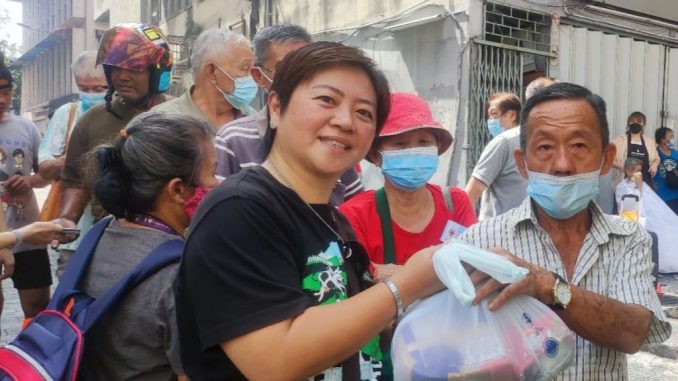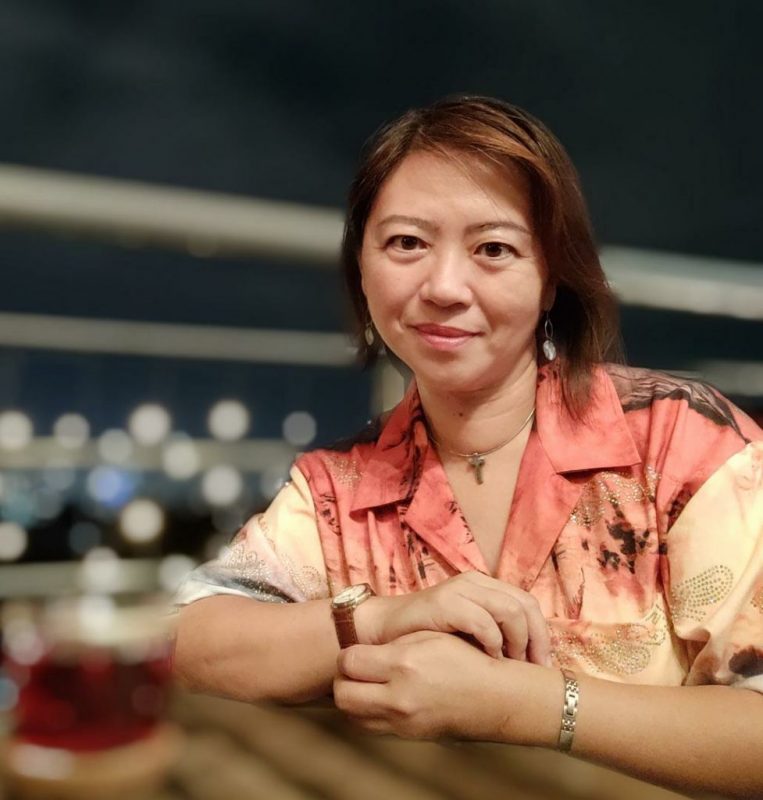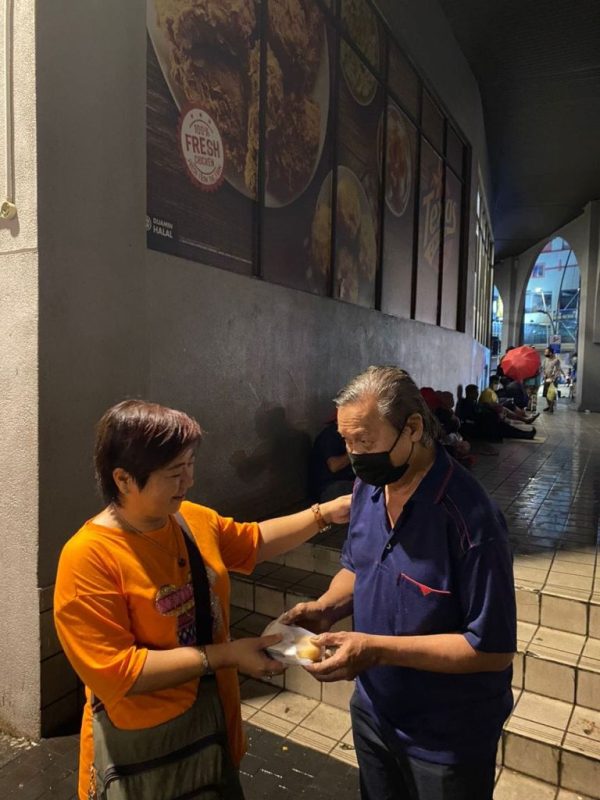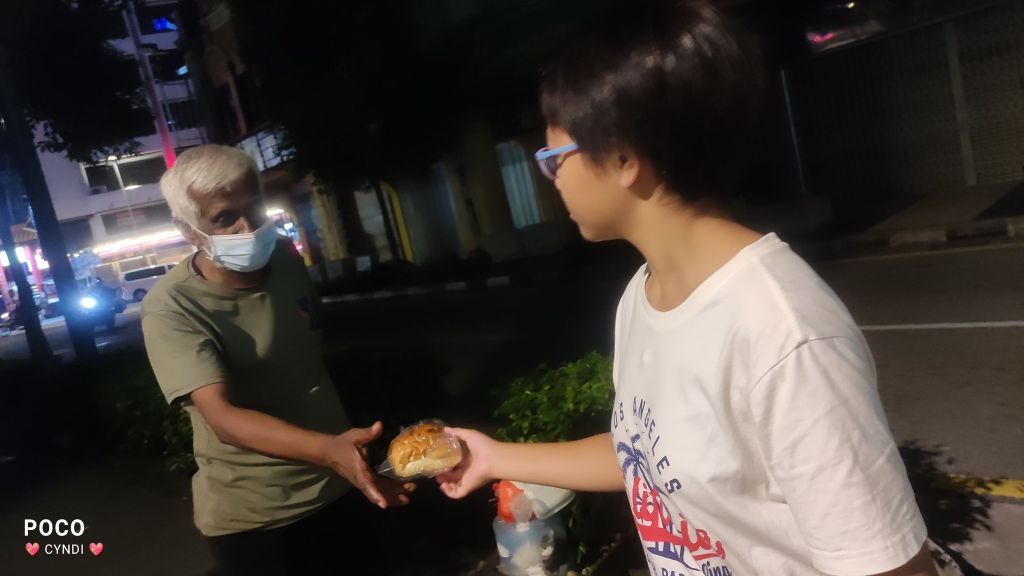
One of the pleasures of interviewing and getting to know the powerful testimonies of local Christians is hearing how God is still at work in our nation. But besides that, there are also the new friendships that are formed. This does not always happen. Most times, both interviewer and interviewee will move on with their lives once the story is written and published. However, when it does happen, it can be one of the best rewards anyone can gain from a role (a friend described us as scribes) such as ours.
Ever since I covered Cyndi Yong’s story last year, we have been keeping in touch. Cyndi might no longer be a stranger to many of us, and some of us may even have come to know her personally. Hers is a powerful story. We featured that story in not just one but two articles last year. Both are still among our most-read, one year after they were published.

Before finding her current purpose in God’s Kingdom, Cyndi faced hardships that almost broke her. But amid that hardship, she became a warrior for God, serving the destitute and fighting against the spirit of oppression in the center of our capital city. In our recent meetup, we chatted about what made her tick and gave her the strength for her ministry.
For those new and unfamiliar with Cyndi’s story, she came from a background of active involvement in tourism. Life was good, and she knew the streets of Kuala Lumpur well. She loved the city so much that she would make it a point to encourage the tour groups she guided to not just see with their eyes, but to slow down and absorb all the noise – which was like music to her ears – and engage their other senses, such as their taste and touch. It all changed when the pandemic struck.

Cyndi shared that she was unprepared when the pandemic happened. The industry she was in was the first to be affected, and it was hit the hardest (The tourism industry was the first to ‘close its shutters’ during the lockdown and the last to gain its resurgence.) Furthermore, she was a single mother with a daughter to support. The pandemic was so prolonged that it took a toll, and there were days when she wondered how she would get support for her daughter’s education, and even where their next meal would come from.
About half a year after she had lost her income, as she was walking the streets that used to bring good memories to her, she had an awakening experience. Within one day, Cyndi saw the contrast between the arrogance of a coffee shop owner that she used to bring tourists to and the humility and compassion of a simple noodle stall owner that she had not really noticed in better times. It was a catalyst, God reminding her of the dignity of the poor and of the value of compassion. From a young age, Cyndi had always wanted to help the people she saw struggling on the streets. Now, with the conjunction of her personal experiences, it was as if it was the beginning of a calling from God.

Cyndi shared, ‘Though I no longer had tourists to bring, I still walked the areas I used to take them to because they were places with good memories. One of these places was Petaling Street. What I saw there during the pandemic broke my heart. The street used to be bustling, filled with noise and activity. But now it was like a dead town. All I saw, especially during the nights, were the destitute with nowhere else to go.’
In the middle of one quiet and still night, at around 3am, Cyndi found herself at the foot of the Petaling Street arch. Emotion overwhelmed her, and she knelt there and prayed loudly to God to have mercy on Malaysia and Chinatown. She prayed for a long time against the spirit of the oppression in that place until she heard a loud trumpet sound that resounded clearly through the whole street. Deep within her, Cyndi knew something had happened in the spiritual realm. She looked around, and it was 4:30 am. She had been there for more than an hour.

‘The awakening I had with the two vendors and the knowledge that God was going to do something for the place gave me a real motivation and purpose to do something,’ Cyndi related. With the help of some friends and a kind-hearted coffee shop owner, Cyndi started to build the Petaling Street Community Care (PSCC) care center. At first, the underprivileged group of people PSCC wanted to serve was skeptical. They were used to hardship and had not often been treated kindly by mainstream society. However, as they came and were treated with dignity and respect, more and more people would come. Soon, a community formed.
Cyndi shared that one of the things that spur her in her ministry is the look of hope and joy on the faces of people who were once bereft of them. And one word recurred many times; compassion. Because she’s invested in the community and knows and loves them, there is a special joy she can’t find elsewhere when God uses her to bless the most vulnerable groups there. Many people PSCC serves are so close and endearing to her that they call her Mummy Cyndi. Cyndi describes this special joy as finding treasures in poverty.

‘My experience during the pandemic has taught me not to take life for granted,’ Cyndi expressed. ‘When I was a tour guide, I thought life would go on as it did then forever. I did not anticipate that life would take an unexpected curve. I experienced rejection, despair, loneliness, hopelessness, and feeling unloved. Many others experienced hardship during the pandemic. I remember the white flag campaign. So many were calling out in distress.
‘There is a saying, “There but for the grace of God go I“. What this means is that if we are fortunate enough not to experience poverty, if we have good families, and never knew the real meaning of need, it is because of the grace of God. We do not realise how fortunate we are. We do not know where life might bring us. It opened my eyes to see the underprivileged as human beings with dignity. We are all made in the image of God, and there is immeasurable value in every human soul. What is different about them? When you look at them, physically they are like us. Physiologically they are also like us, with the same emotions and daily needs.’

Initially, whenever Cyndi visited the underprivileged on the streets, she just brought them food, sat with them on their cardboard, and talked to them. ‘Food is a great connector,’ she shared. ‘It breaks barriers, opens up the heart, fosters conversation, sustains others. I didn’t have much to give, but they also didn’t need much. All they needed was to know that someone cared for them. Some of them were on drugs. I didn’t need to advise them to give up drugs. After experiencing the love and care of God, many looked for a rehab center and gave up the addiction on their own initiative. Not by might but by the spirit of God.’
Cyndi conveyed that there are times when the destitute have told her they wish they could go to sleep and not wake up the next day. Cyndi would ask them, “Do you know who will be the saddest person on Earth the next day if that were to happen?” They know. And that knowledge that someone is concerned for them can make all the difference in the world.

Cyndi shared that many of the treasures she found serving the underprivileged cannot be bought with money. One such experience was with Raj, which we covered in a previous article. But there are many other instances. One man Cyndi had blessed with a towel and a shirt for an upcoming New Year, which many of us may think is insignificant, later blessed Cyndi’s daughter, Latreia, with an ang pau that had a substantial amount. When Cyndi enquired whether the amount was difficult on him, he told her he had found a part-time job, and ‘You didn’t know how much of a difference it was to me knowing someone cared for me during the lowest point of my life”. Yet another went around to the shops to ask for flowers and wrote a hand-written note of gratitude to her on Valentine’s Day. A third person even asked a shoes shop that was closing down for a new pair of shoes so that it could be gifted to Cyndi, saying to her, “You are the one who cared for me most, Mummy Cyndi. You deserve a new shoes too.” ‘Special moments like these, money cannot buy,’ Cyndi said in gratitude.
‘God told us, in His word, to look out for the last, the least, and the lost. Who is the last, least, and lost? It is the vulnerable people we see on the streets. What difference can we make in the life of others?’ After personally witnessing and hearing of so many deaths and suicides, even among educated and young people, this question haunted her. ‘If only we could have done something for them,’ she expressed.

Since the start of my friendship with Cyndi last year, I have also come to know Cyndi’s daughter, Latreia. Latreia is precocious and resilient, very vibrant and confident despite the hardship she must have faced during the more challenging times. And already Cyndi has started to impart some lessons to her about the dignity and worth of the human soul. Latreia accompanies Cyndi and serves the underprivileged alongside her. Among the things that Cyndi has taught her is coming down to the level of the people they serve. Latreia knows and understands that it is a hard life on the streets and that the people are God’s image-bearers, as much as we are.


Life sometimes takes us in directions we do not foresee or anticipate. In Cyndi and Latreia’s case, they could have despaired and just given up and let life take them where it will. Instead, they have gained so much spiritual treasure and wisdom, and much of the treasures they found in the unlikely place of poverty indeed cannot be bought with money, all because of the grace and providence of God and their faith in that God.
This article is about what is in Cyndi’s heart for her ministry and what keeps her going in it. You may read Cyndi’s story in more detail at The Firefly in the Darkness: Cyndi Yong and the story of Petaling Street Community Care (PSCC) at A Community for the Marginalised: The Remarkable Story of Petaling Street Community Care
The writer would like to express his utmost gratitude to Cyndi for her great hospitality throughout the production of this article. All photos kindly contributed by Cyndi Yong.
|Share The Good News|




Leave a Reply